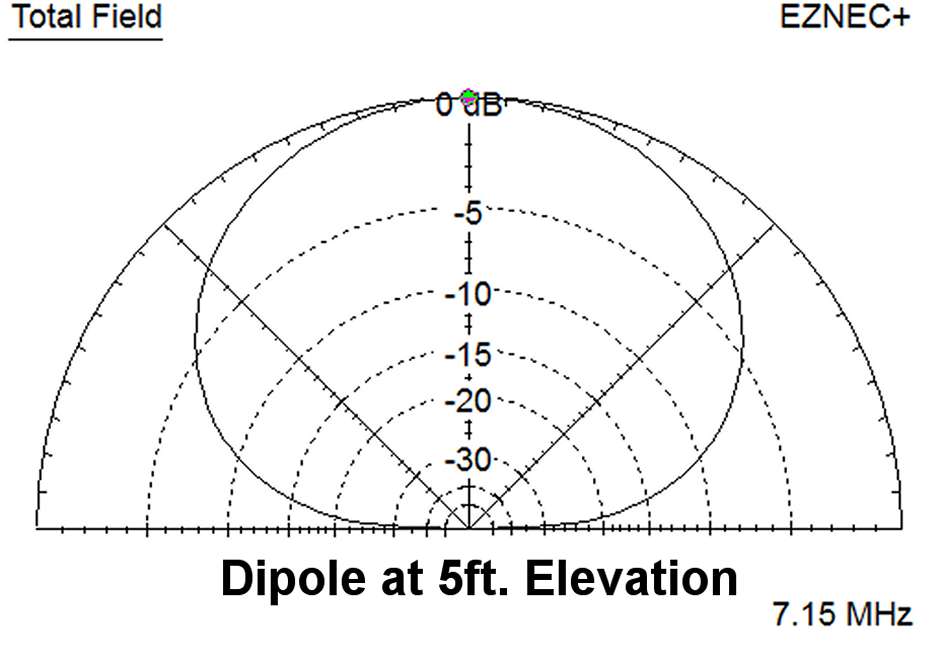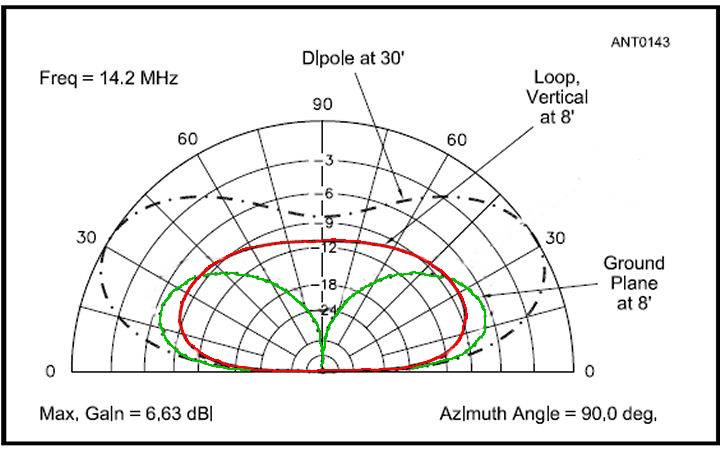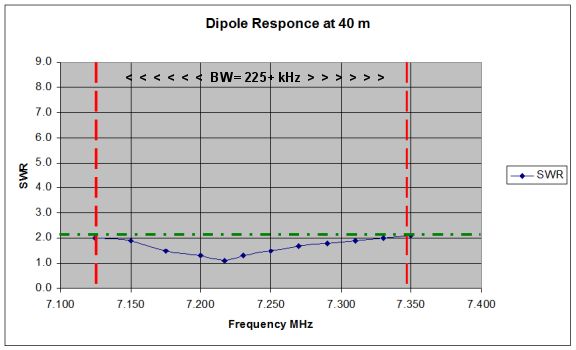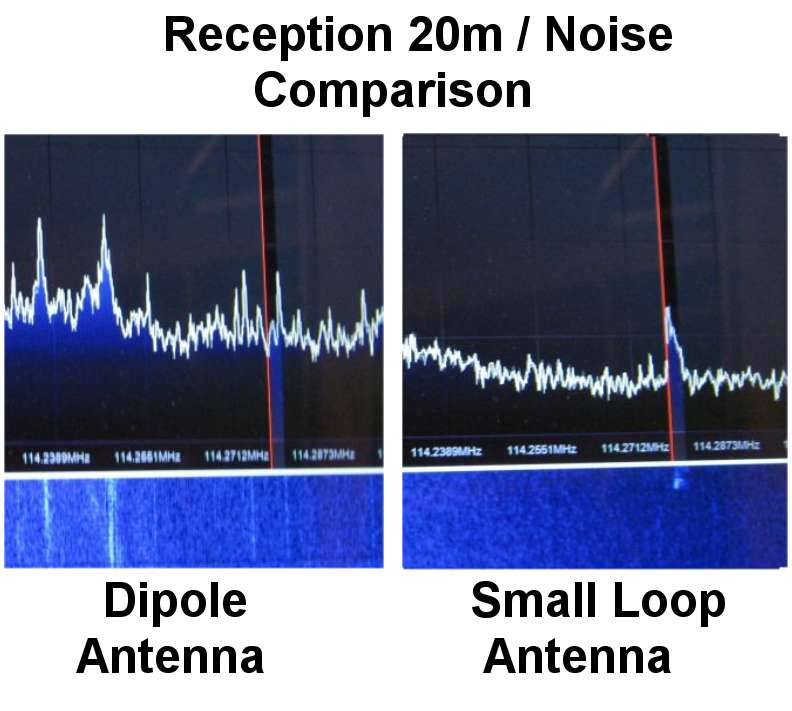
|

|
1-LoopAntHome
2-Introduction
3-Characteristics
5-Data
6-Construction
7-Resources
|

|

|
4 - Comparisions To Other Antennas
|
Compared To A Dipole Or Vertical Antenna
- A small loop antenna can be operated efficiently at a very low height. Near ground losses are less for small magnetic loop antennas than for dipoles
because most of the near field component is magnetic and the magnetic losses in ordinary ground are usually less than electric field losses.
- A horizontal dipole mounted at a very low height would be an inefficient "cloud warmer". A low mounted small magnetic loop antenna works fine.
Elevation Radiation Comparison


- How does the performance of a low mounted small loop antenna compare to a ground plain vertical or a dipole mounted at a height of 1/2 wavelength?
Radiation Patterns: Vetical / Dipole / Loop

Enlarge
- The only read drawback when compared to other antennas is the very narrow bandwidth.
Dipole 40 Meter Band: Wide Responce

Enlarge
Small Loop 40 Meter Band: Narrow Responce

Enlarge
- A small loop antenna will be quieter than either a dipole or vertical (can show electrostatic noise reduction by as much as 26dB).
The comparison below was made using an software defined radio as a spectrum analyzer and switching antenna feeds from the dipole
to the loop while a SSB signal was being received on the 20 meter band. Note how the received signal is almost "lost" in the noise
on the dipole and that general and local noise (spikes on the left side) are suppressed by the small loop antenna.
Noise Comparison: Dipole vrs. Loop Antenna

Enlarge
|
|
|
|









